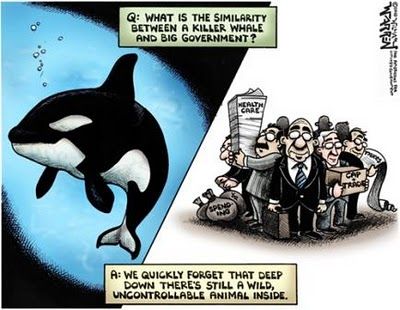“We are not in the hedge fund business.”
Jamie Dimon, CEO JP Morgan Chase
JP Morgan Chase CEO Jamie Dimon testified today before the Senate Banking Committee about the $2 billion plus loss from it’s “London Whale” gambling with depositor and tax payer money. He was hardly contrite. Not only did Dimon whine about the complexity of the federal regulatory system but he lied, blatantly, this from Yves Smith at naked capitalism:
In Senate testimony, Dimon revealed his idea of “portfolio hedging” to be even more egregious than the harshest critics thought. Dimon presented the job of the CIO to be to make modest amounts of money in good times and to make a lot of money when there’s a crisis. (That does not appear to be narrowly true, since in the last couple of years, during which there was no crisis, the CIO’s staff were among the best paid in the bank and produced significant profits for the bank. That is a bald faced admission that the CIO’s mandate had nothing to do with hedging. A hedge is a position taken to mitigate losses on an underlying exposure should they occur. Instead, Dimon has admitted that the mission of the CIO is to place bets on tail risks that are unrelated to JP Morgan’s exposures. A massive, systemically destructive strategy like the Magnetar trade would fit perfectly within the CIO’s mandate.
Needless to say, this definition is an inversion of not just what the Volcker rule was meant to stand for (limiting financial firm gambles with taxpayer money), it’s NewSpeak, or in this case, DimonSpeak: “a hedge is whatever I say it is, no more and no less.” Another bit of DimonSpeak was his specious response when he was arguing against the Volcker rule. The JP Morgan chief asserted that a customer loan could be construed to be a prop trade. Um, no, Volcker applies to trading books. The fact that he’d run a line like that shows how little he thinks of the intelligence of the Senate Banking Committee and the public generally. [..]
It was instructive to see how effective confident misrepresentation can be. Most of the Republican senators fawned over Dimon after the ritual scolding at the top of the hearings, and I suspect most of the media will simply replay his lines uncritically. There were a few that will work against him, like his reluctant admission that the Volcker rule might have prevented the failed London trade. But in general, reducing complex situations to soundbites allows for obfuscation and misdirection, which is exactly what Dimon and his ilk are keen to have happen.
During the testimony, Dimon admitted to responsibility for the failed trade that could possibly lead to criminal charges for violation of Sarbanese-Oxley, but even under this Democratic administration, no one believes that, certainly not Yves or David Dayen at FDL:
Dimon also deflected blame for the losses. David Dayen recounts the conference call that took place during the hearing with economists Rob Johnson and Bill Black:
Dimon tried to blame the losses on a lot of factors, and in such a way that doesn’t trip up his priorities later. As economist Rob Johnson mentioned in a conference call, Dimon has been lobbying vociferously against things like the Volcker rule. So he doesn’t want this Fail Whale mix-up to lead to a stronger regulatory environment. He tried to explain the trades as a hedge (never saying that they were one, but that he “believed” they were one, to keep him out of trouble), that would make small amounts of money in good times and more money when things went bad. They were also specifically tied to business in Europe. Bill Black, who was also on the call, targeted this as a non sequitur. “He said that senior management ordered the CIO to get out of the risk out of this underlying supposed hedge,” Black said. “But a hedge is supposed to be reducing risk, and it was protecting you from Europe going bad, when Europe is going bad. So it should have been making more money at this time.”
Black continued. “Instead of reducing the risk, the CIO went into a vastly more complex series of derivatives and went far larger, and they hid the losses. I mean, my God. They violated direct orders, lose a ton of money and lie about it. Dimon described a massive insurrection by the CIO.”
Most of the senators soft peddled their questions and Sen. Jim DeMint (R-SC) actually asked Dimon for advice about banking regulations and Sen. Richard Shelby (R-AL) doesn’t believe in second guessing the banksters. The closest any of the questioners came to holding Dimon accountable for the losses was Sen Jeff Merkley (D-OR). It was during that exchange that Dimon admitted he was responsible for the losses.
All in all another farce by our politicians who are owned by the man before them.

 That $2 billion
That $2 billion
Recent Comments